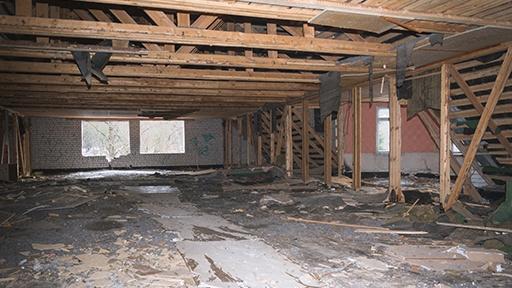Building a basement foundation is a critical stage in construction, laying the groundwork for the entire structure above. However, ensuring its longevity and stability requires more than just pouring concrete and hoping for the best. To truly create a basement foundation that stands the test of time, it’s essential to uncover the secrets that professionals swear by. From selecting suitable materials to implementing effective waterproofing techniques and ongoing maintenance, this guide unveils the strategies and insights necessary to build a basement foundation that endures for generations. Join us as we delve into the “Secrets to a Long-Lasting Basement Foundation” and discover how to safeguard your home’s structural integrity for years of sturdy basement foundation construction.
Choosing the Right Foundation Material
Selecting the appropriate material for your basement foundation is a pivotal decision directly impacting its durability and resilience. Several options are available, each with its own set of benefits and considerations.
Poured Concrete is popular due to its strength and versatility. It offers superior structural stability and can be customized to meet certain design requirements. Locations with poured concrete foundations are particularly suitable for regions with high water tables or seismic activity.
Concrete Blocks: Contractors stack and bond precast concrete blocks together with mortar to construct concrete block foundations. They provide a durable and cost-effective solution, suitable for a wide range of soil conditions. However, proper installation and waterproofing are essential to prevent water infiltration through the joints.
Insulated Concrete Forms (ICFs): ICFs consist of interlocking foam blocks or panels filled with concrete to create a solid foundation wall. This system offers superior insulation properties, energy efficiency, and soundproofing compared to traditional foundation materials. It’s an excellent choice for creating a comfortable and sustainable living environment.
When deciding on a suitable material for your basement foundation, you should consider factors such as soil type, climate, and budget.
Speak with a structural engineer or skilled constructor to evaluate these aspects and choose the best solution for your requirements. Choosing the suitable foundation material lays the groundwork for a sturdy, long-lasting structure that will withstand the test of time.
Proper Site Preparation Techniques
Thorough site preparation is essential before laying the foundation. This includes removing debris from the area, ensuring adequate drainage, and compacting the soil to prevent it from settling. Additionally, addressing soil issues, such as expansive clay or organic materials, is vital to prevent future foundation problems.
Effective Waterproofing Methods
Water damage poses a significant risk to basement foundations, making effective waterproofing crucial for maintaining structural integrity. By employing various waterproofing methods, homeowners can mitigate the risks associated with moisture infiltration and safeguard their foundations against damage.
Installing a Drainage System: A well-designed drainage system, such as a perimeter or French drain, helps channel water away from the foundation.
This measure decreases the risk of hydrostatic pressure buildup and possible water seepage into the basement by keeping water from collecting around the basement walls.
Applying Waterproof Coatings: Waterproof coatings, such as liquid-applied membranes or cementitious waterproofing products, create a protective barrier on the exterior surface of the foundation walls. These coatings prevent water penetration while allowing the walls to breathe, effectively sealing out moisture and protecting the foundation from water damage.
Using Quality Sealants: Sealants play a vital role in sealing gaps, cracks, and joints in the foundation walls, preventing water intrusion through these vulnerable points. Premium sealants, like those based on epoxy or polyurethane, offer durable defence against water intrusion and support preserving the foundation’s structural integrity.
Using these efficient waterproofing methods, homeowners extend the life of their basement foundations and drastically lower their risk of water-related problems. Additionally, routine maintenance and inspection are essential to ensure that the waterproofing techniques last over time and provide reliable protection against water damage.
Reinforcement Strategies for Added Strength
Reinforcement measures are crucial to enhancing the strength and durability of the basement foundation. Techniques like adding steel rebar or fibre reinforcement to concrete and employing proper curing methods can significantly increase the foundation’s resistance to cracking and structural damage.
Expert Grading and Drainage Solutions
Proper grading and drainage around the foundation perimeter are essential for preventing water accumulation and soil erosion, which can compromise the foundation’s integrity. Implementing slope grading away from the foundation and installing drainage systems, such as French drains or gutter extensions, are effective solutions.
Quality Control During Basement Foundation Construction
Maintaining high-quality standards during construction is paramount for ensuring a long-lasting basement foundation. It includes adhering to building codes, following manufacturer’s specifications for materials, and conducting regular inspections to identify and address potential issues promptly.
Importance of Professional Installation
While DIY projects can be tempting, it is highly recommended that you entrust the installation of your basement foundation to experienced professionals. Professional contractors reduce the possibility of mistakes and guarantee the best outcomes by having the knowledge, tools, and resources necessary to carry out the Basement Foundation construction procedure accurately.
Regular Inspection and Maintenance Tips
A well-constructed basement foundation requires regular inspection and maintenance to preserve its integrity. By routinely checking for signs of settlement, water damage, and cracks and taking immediate action when necessary, minor concerns can be prevented from becoming more severe and expensive to fix.
Addressing Common Foundation Issues
Understanding common foundation problems, such as settling, cracks, or bowing walls, is essential for proactive maintenance. Identifying these issues early on and knowing the appropriate corrective measures, whether soil stabilization, foundation underpinning, or crack repair, can help prevent further damage.
Future-Proofing Your Basement Foundation
Anticipating future challenges and implementing preventive measures can help future-proof your basement foundation. It may include incorporating resilient design features, such as adequate insulation, proper ventilation, and strategic landscaping, to mitigate risks and ensure the foundation’s longevity for years.
